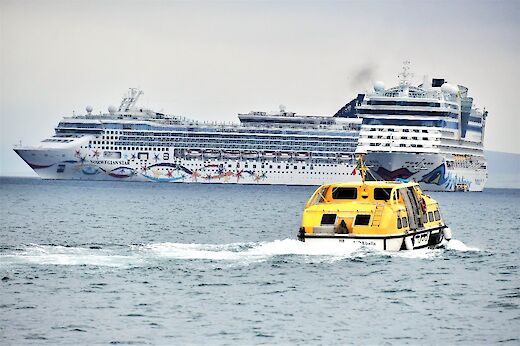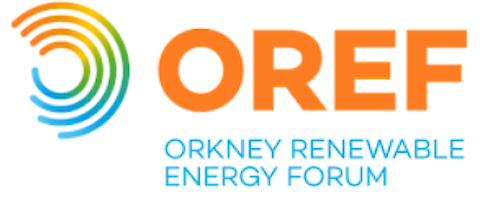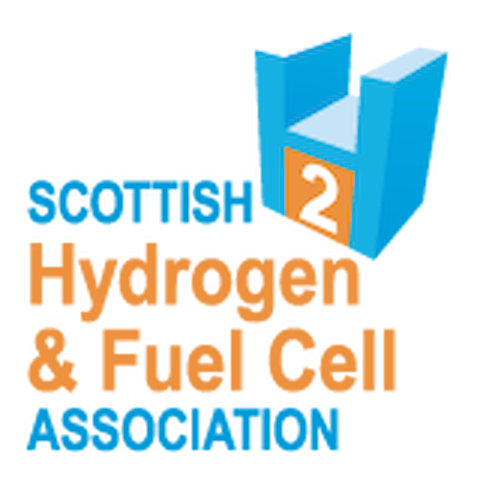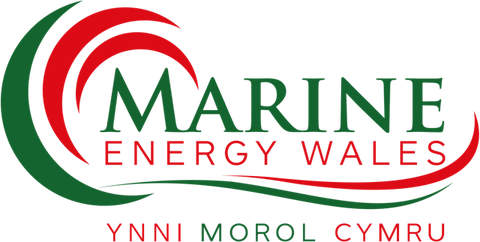Clean Maritime Demonstration Competition Round 4 - Anchorage Cold-Ironing at Bay of Kirkwall.
Orcades Marine Management Consultants Ltd is leading an effort to reduce emissions from cruise ships at Bay of Kirkwall through the development of a Cold-Ironing Buoy technology, which can be replicated in anchorages elsewhere in the world. In collaboration with the Orkney Islands Council (OIC) Harbour Authority, GAC UK, Schneider Electric and Aquatera Ltd, the team will be completing a Front-End Engineering Design (FEED), along with a comprehensive feasibility study which looks at the technical, economic and social impacts of the technology.
With the pressure to reduce emissions in the maritime industry, there has been an increase in demand over the past years for ports and harbours to provide cold-ironing services so that vessels can stop running their shipboard engines for auxiliary hotel loads when at berth. This can have significant impact on cruise liners’ overall carbon footprint, given that cruise ships require up to 20% of their usual power consumption even at port for their hotel loads.
GAC UK Commercial Head of Shipping, Charlotte Bruce: “GAC UK is committed to delivering solutions to all our stakeholders on their decarbonisation journey, and we’re thrilled to be a part of this cold-ironing buoy technology study. We look forward to working with all the partners over the next year, driving change towards net zero for the cruise and wider maritime industry.”
While cold-ironing for ships at berth is easily achievable with existing technologies, no existing solution exist to provide cold-ironing for ships at anchorages. The Cold-Ironing Buoy will address this gap by bringing Onshore Power Supply (OPS) through a subsea cable to the anchorage for vessels to plug into.
Schneider Electric’s United Kingdom Seaport Segment Lead, Shaun Faulkner: “Schneider is delighted to play a part of the Cold-Ironing Buoy project. As an organisation, our purpose is to make sustainability accessible to all, and to empower everyone to make the most of our energy and resources. There is an increasingly clear need for cleaner and more sustainable processes and guidance in the ports and maritime leisure industry. This project will be a positive step forward in terms of fulfilling that need and demonstrating what a more sustainable future could look like.”
Kirkwall Bay anchorage, which is located in the Orkney Islands of Scotland, makes for the perfect site for study and testing the technology. Since 2013, Orkney has generated over 100% of their electricity demand from renewable sources, and this rose to 128% by 2020. New renewable projects, such as the tidal energy planned for Westray Firth, will continue to generate excess green power at the islands, allow expansion of clean energy usage at Orkney and even power export.
OIC Harbour Authority Business Development Manager, Paul Olvhoj: “Orkney is the busiest transit call location in the UK with over 250 cruise vessels due in 2024 and a percentage of these due to stay at the Kirkwall. Vessels anchoring in Orkney are increasingly recognizing the environmental and sustainability benefits of utilizing shore power, reducing emissions and minimizing the environmental impact of their operations and to be able to do this at anchor would be step change for the industry.”
Director of Aquatera, Ian Johnstone: “Aquatera is delighted to be part of this project. We have been working on marine and onshore de-carbonisation projects in Orkney and across the globe over the last ten years and this project is another step towards demonstrating how the maritime industry can move towards developing affordable zero carbon infrastructure.”
Cruise ships utilising this technology can eliminate their emissions while at port while improving air quality for population in the coastal communities nearby. A network of ports which such infrastructure support could possibly allow for a Green Cruise Corridor to be established in the region.
Managing Director of Orcades Marine, Captain David Thomson: “I’m thrilled to announce our successful grant award from Innovate UK’s CMDC. Our aim is clear – to eliminate carbon emissions from some of the largest ships within port limits. This project marks a significant step towards a cleaner, more sustainable maritime future, and we’re committed to driving innovation and positive change in the industry.”
This project is part of the Clean Maritime Demonstration Competition Round 4 (CMDC4), funded by the UK Department for Transport (DfT) and delivered by Innovate UK. CMDC4 is part of the Department’s UK Shipping Office for Reducing Emissions (UK SHORE) programme, a £206m initiative focused on developing the technology necessary to decarbonise the UK domestic maritime sector.
Photo Credit: Bruce Flett
This project is slated to start in April 2024, and any enquiries can be directed to: info@orcadesmarine.co.uk.














